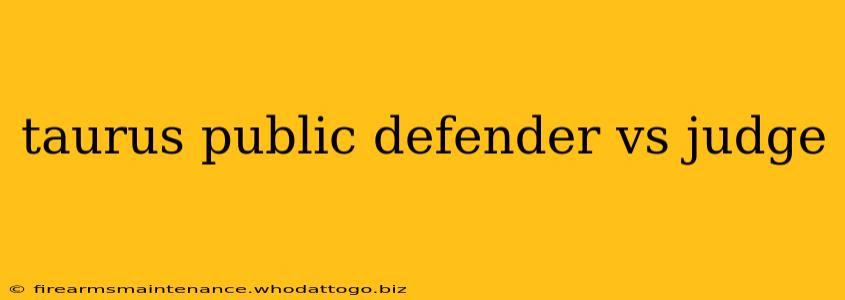The courtroom drama between a Taurus public defender and a Taurus judge presents a fascinating case study in astrological influence on legal proceedings—though it's crucial to remember that astrology is not a predictor of legal outcomes. Instead, let's explore how the typical Taurus traits might manifest in this specific dynamic, focusing on their potential impact on courtroom strategy and overall proceedings. This analysis is for informational and entertainment purposes only and should not be considered legal advice.
Understanding the Taurus Personality in the Courtroom
Before diving into the specifics of the defender-judge interaction, let's examine the core characteristics of a Taurus personality that could influence their behavior within a legal setting. Taureans are often known for their:
-
Practicality and groundedness: A Taurus judge is likely to focus on the facts, evidence, and precedent, valuing a logical and methodical approach. A Taurus public defender will similarly prioritize concrete evidence and a pragmatic defense strategy.
-
Patience and determination: Both the judge and defender might exhibit remarkable patience in pursuing their respective goals. The judge may be thorough in their review of the case, and the defender will likely persevere in their defense, even facing significant challenges.
-
Stubbornness and tenacity: This can be a double-edged sword. While it can translate to unwavering dedication to their roles, it could also lead to inflexibility and potential clashes if their perspectives diverge significantly. Compromise may be challenging to achieve.
-
Love of stability and fairness: Both roles inherently value justice and stability within the legal system. This shared value could potentially foster a more respectful, albeit potentially less dynamic, courtroom environment.
Taurus Public Defender Strategies
A Taurus public defender, leveraging their inherent strengths, would likely employ the following strategies:
-
Meticulous preparation: They'd leave no stone unturned, thoroughly investigating every detail of the case to build a robust defense.
-
Calm and collected demeanor: Their grounded nature would allow them to maintain composure under pressure, presenting a confident and credible image to the court.
-
Focus on tangible evidence: Their practicality would lead them to prioritize demonstrable facts over emotional appeals.
-
Persistence and negotiation: Their determination would ensure they explore all avenues for a favorable outcome, potentially engaging in skillful negotiation with the prosecution.
Taurus Judge's Approach
A Taurus judge, guided by their characteristic traits, might display the following tendencies:
-
Impartial and fair judgment: They would strive to deliver a just verdict based on the evidence presented, prioritizing objectivity.
-
Detailed review of proceedings: Their methodical nature would lead to a thorough examination of all arguments and evidence.
-
Respect for legal process: They would likely adhere strictly to legal procedures and precedents.
-
Potential for slow deliberation: Their need for thoroughness might sometimes result in slower decision-making compared to other astrological signs.
Potential Conflict and Synergy
The potential for conflict arises from the stubbornness inherent in the Taurus personality. Disagreements could stem from differing interpretations of the evidence or procedural issues. However, their shared love of fairness and practicality could also facilitate a relatively smooth process. The shared grounding could lead to a more respectful exchange, even amidst disagreements.
Conclusion: Beyond the Stars
While this analysis explores the potential influence of Taurus traits, it is crucial to remember that individual personalities are far more complex than any astrological sign can fully encapsulate. The specific outcome of a case involving a Taurus public defender and a Taurus judge would depend on numerous other factors, including the specifics of the case, the skills of the individuals involved, and the overall legal context. This exploration serves as a thought-provoking discussion of how personality traits might manifest in a legal setting—not a predictive model for legal outcomes.

